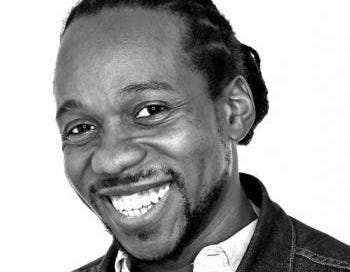New Report & Podcast: The Cultural Contradictions of Neoliberalism + the Path to Governing Power with Maurice Mitchell
We have two big announcements today:
First, we are excited to share a new report that we co-authored with the brilliant lead author, Shahrzad Shams, for the Roosevelt Institute! The Cultural Contradictions of Neoliberalism: The Longing for An Alternative Order and the Future of Multiracial Democracy in An Age of Authoritarianism tries to answer some big questions: Why are authoritarian movements ascendant? How have everyday people responded to what we call the "cultural wreckage of neoliberalism”—loneliness, addiction, and the demise of civic institutions? How has the authoritarian right tapped into many people’s longing for an alternative order to build a mass movement by engaging first in culture and later in politics? How might progressives shed a technocratic, policy-first orientation to tune into people’s emotions, lived experiences, and meet them where they are in mass culture and in communities? After a year of research, we offer some provocative answers and ideas for how a pro-democracy coalition can grow by engaging hearts and minds through culture, organizing, and by offering a compelling vision of the good life.
Today, we also release episode 7 of the Practical Radicals Podcast! Stephanie Luce and Deepak interview Maurice Mitchell about the path to governing power.
Episode 7: Electoral Strategies with Maurice Mitchell
Many progressives are cynical about electoral politics. But our guest today explains why engaging in electoral politics is crucial for building the kind of society we want. Maurice Mitchell is the National Director of the Working Families Party, a savvy, independent political organization that has given progressives greater voice and leverage in cities and states around the country, for example by taking advantage of fusion voting. Maurice describes his own trajectory, from being a local community organizer to a leader in the Movement for Black Lives, and how he came to see that social movements alone are limited without the organizing force that a political party provides.
He offers an insightful analysis of our present conjuncture, shaped by a ruthless right committed to minority rule through the courts, decades of neoliberalism, and an information environment that breeds atomization and loneliness. As neoliberalism’s legitimacy crumbles, and the post-neoliberal, authoritarian right speaks to popular concerns, Maurice argues that WFP’s strategy of winning elections to achieve governing power and engaging everyday people in the work of governance offers a hopeful path forward.
Maurice concludes by reflecting on the questions that fill him with the same excitement he had as a young organizer: “What are you building? Who are you choosing to be? And who are you choosing to be with?”
Links:
Maurice’s 2022 highly influential essay “Building Resilient Organizations” is a must-read for everyone in progressive politics. And now, there’s a workbook, too.
We mentioned Leadership for Democracy and Social Justice, a terrific new training institute at CUNY for early- and mid-career organizers where Maurice has been a regular guest instructor.


